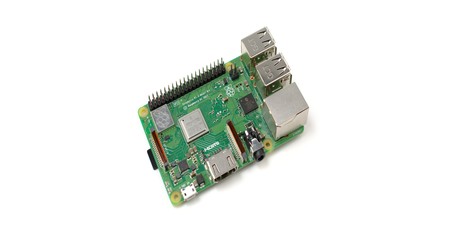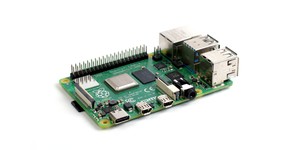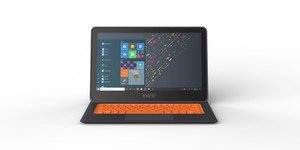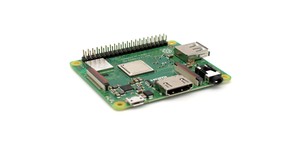Raspberry Pi 3 B+ launches with new SoC, 5GHz Wi-Fi
March 14, 2018 | 07:05
Companies: #broadcom #raspberry-pi-foundation

The Raspberry Pi Foundation has announced the launch of the Raspberry Pi 3 B+, a revision to its popular single-board computer which brings a faster and cooler-running processor alongside gigabit Ethernet and 5GHz Wi-Fi connectivity.
Celebrating its sixth year and with nearly 15 million units sold, the Raspberry Pi has proven a paragon of success. Originally created with a view to selling a few thousand units to hackers and tinkerers, the low-cost single-board computer (SBC) family has enjoyed numerous upgrades throughout the years: The original 256MB Model B, named for the Acorn-produced BBC Micro family, received an upgrade to 512MB and a shiny new 40-pin general-purpose input/output (GPIO) header as the Model B+, the Model A and Model A+ ditched the power-hungry USB Ethernet chips for those not requiring network connectivity, and the Raspberry Pi 2 introduced the first quad-core chip - and yet, impressively, still sold for the same £30 as its predecessor.
The Pi 2 was followed, naturally, by the Pi 3, the first to include a 64-bit processor - though its operating system, the Linux-based Raspbian, remains stubbornly 32-bit - and onboard 2.4GHz Wi-Fi and Bluetooth connectivity. Aside from some ultra-compact variants - the £4 Raspberry Pi Zero and £10 Raspberry Pi Zero W with wireless radio - and its industrial-focused Compute Module brethren, that has been it until today's unveiling of the Pi 3 B+.
The Pi 3 B+ is so named as it's not exactly a Pi 4: The BCM2837 system-on-chip processor is shared between the Pi 3 and the Pi 3 B+, but in the latter enjoys a smart new package with metal heatspreader as the B0 spin. Coupled with a custom power management integrated circuit (PMIC) and a thicker circuit board, this has two effects: The first is to vastly improve the thermal performance of the system, doing away with the aggressive thermal throttling and up-to-100°C hot-spot on the processor cores; the second is to allow for a speed boost from 1.2GHz to 1.4GHz, while increasing the primary throttle point from around 1GHz to 1.2GHz - meaning the Pi 3 B+ is as fast while undergoing thermal throttling as the Pi 3 is at cold.
Other enhancements to justify the plus suffix include a new radio module which adds 5GHz Wi-Fi connectivity and connects to a ground-plane antenna inspired by the one on the Pi Zero W, while a new USB hub and Ethernet controller adds gigabit support for the first time in Raspberry Pi history - though, unsurprisingly given it still shares a single USB 2.0 channel to the system-on-chip, its real-world throughput is limited to around 220Mb/s. There's even support for Power-over-Ethernet (PoE), though this requires an add-on board of the type known as Hardware Attached on Top (HAT).
The Foundation has confirmed that the Pi 3 B+ will be sold at the traditional $35 recommended retail price, which typically translates to around £30 including VAT at UK retailers. It will sit alongside the Pi 3 and older models, too, rather than replace them - though co-founder Eben Upton has suggested that there's little reason for end users to pick the older Pi 3 over its enhanced successor.
A series of benchmarks demonstrating the changes between the various models is available on Medium, while the Pi 3 B+ should be ready to purchase at UK stockists now.

MSI MPG Velox 100R Chassis Review
October 14 2021 | 15:04








Want to comment? Please log in.